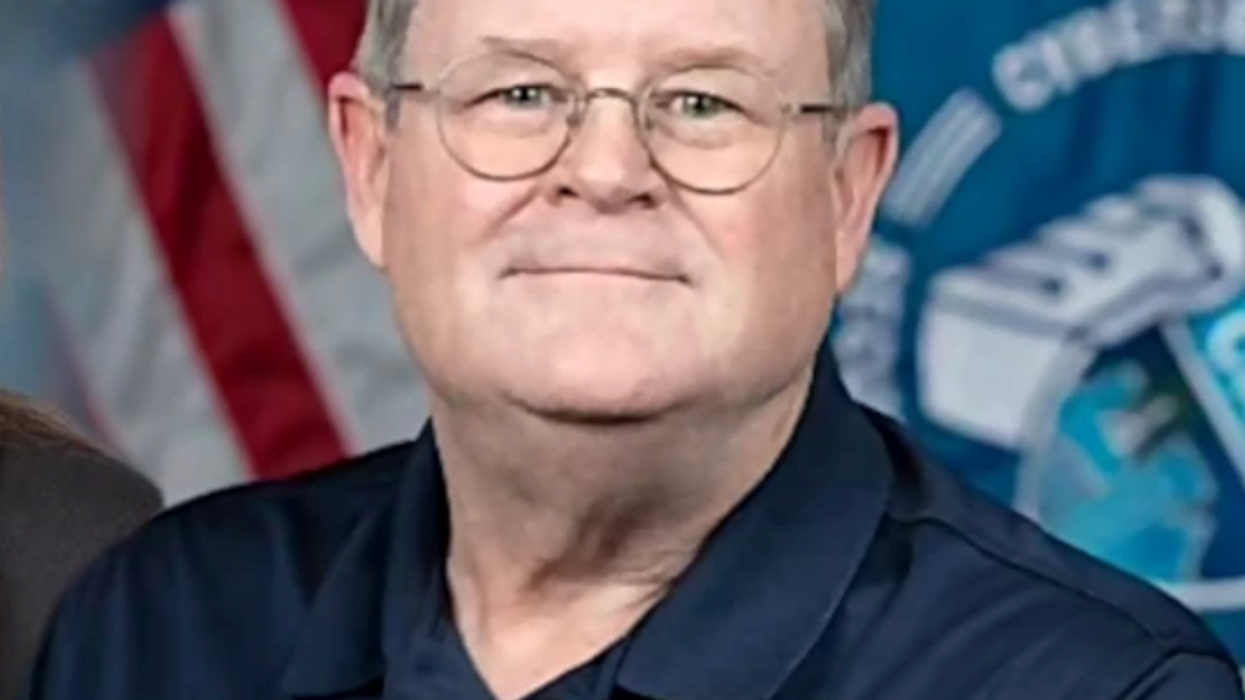MAGA Media Blame Advisers For Trump Tariff Nightmare
Numerous right-wing media figures are placing blame for the chaos and confusion over Trump’s “reciprocal” tariffs on two of his top economic appointees — senior trade adviser Peter Navarro and Commerce Secretary Howard Lutnick — rather than on Trump himself.
When announced, Donald Trump’s April 2 “Liberation Day” tariffs amounted to one of the largest tax hikes in American history, and despite being labeled “reciprocal,” they had absolutely nothing to do with foreign tariff rates. These new rates, the highest in more than 100 years, caused widespread market volatility and are projected to raise costs for the average American family by thousands of dollars while also increasing the risks of a recession — if they go into effect.
A week after announcing the various tariff rates on dozens of countries, Trump announced a 90-day “pause” — after his press secretary previously called reports of such a pause “fake news” — aside from a universal 10% rate on every country except China, which now has a 145% tariff rate. The Trump administration then amended the tariff rate for Chinese-exported consumer electronics to 20%. This followed comments from Lutnick about a different tariff for electronics, specifically a sectoral tariff on semiconductors.
Pro-Trump media figures on Fox and elsewhere have been blaming Lutnick and Navarro for tariff-related confusion over the past week:
- Fox reporter Jacqui Heinrich: “Some confusion was spurred from the mixed messaging” from Commerce Secretary Howard Lutnick. Heinrich aired a clip of Lutnick saying on ABC’s This Week that consumer electronics will be “exempt from the reciprocal tariffs” but will soon receive their own sectoral tariff. Earlier in the segment, Heinrich reported that Trump “said they are still subject to that 20% charge he imposed over fentanyl.” [Fox News, Fox & Friends, 4/14/25]
- Fox Business anchor Maria Bartiromo blamed confusion on Lutnick and Navarro saying different things on different news programs. In an interview with Trump National Economic Council Director Kevin Hassett, Bartiromo said: “You had some of your colleagues out — Howard Lutnick was on one show, Peter Navarro was on the other show — and, you know, with some of them saying, well, there are no exemptions. And then somebody else saying, well, they’re going to be in a different bucket. It created some confusion.” [Fox Business, Mornings with Maria, 4/14/25]
- Fox Business anchor Cheryl Casone: “I'm so glad he made that clarification on Air Force One. That's why it’s so good to have the president himself come out, because they’ve had some messaging missteps — not him, people underneath him.” Host Maria Bartiromo agreed with a guest who said, “I think this back-and-forth, this confusion that I feel after reading about this all weekend long is definitely part of the strategy in keeping the other side guessing what’s going on.” [Fox Business, Mornings with Maria, 4/14/25]
- Former Trump adviser Steve Bannon: “Let me be blunt. Lutnick, who was Elon’s pick for secretary treasury, I think he’s close to being an unmitigated disaster. We should see a lot less of Lutnick on TV.” [Real America’s Voice, War Room, 4/14/25]
- Fox Business host Charles Payne: “Mixed and confusing messaging” from Navarro and Lutnick “has the same gut-wrenching impact as an unnecessary holding penalty that negates a touchdown.” Payne also wrote: “Some people said I was too hard on my old friend Peter Navarro on Wednesday, but I was hard on messaging from him and Lutnick.” [Twitter/X, 4/13/25]
- Fox Business senior correspondent Charles Gasparino quoted an anonymous “senior Wall Street executive w ties to the Trump White House,” saying: “Susie (Wiles) needs to get control of Lutnick. He is a wrecking ball.” Gasparino added that his source “described @howardlutnick’s comments about the temporary nature of the tariff exemptions as ‘off message.’” Gasparino’s quote continued: “Now the market will open way down again since it appears the administration is totally confused.” [Twitter/X, 4/13/25]
- The Daily Wire’s Ben Shapiro: “If you wanna see a real bull market, the president should fire Peter Navarro today.” Shapiro added: “It would be stupid to continue running full speed into a wall in the name of Peter Navarro's benighted idiocy with regard to trade.” [The Daily Wire, The Ben Shapiro Show, 4/10/25]
- Shapiro: Navarro “should be nowhere near trade policy.” Shapiro also said: “Peter Navarro, who is the architect of much of this trade policy, a man who used to be a zero-growther, actually, in his early career, and then called himself Ron Vara in his own writings to create a fake name under which to attribute many of his writings. It was like Voldemort. His last name is Navarro. Get it? Ron Vara? Get it? You don't? It's dumb.” [The Daily Wire, The Ben Shapiro Show, 4/9/25]
- MAGA personality Ian Miles Cheong: “Navarro is out. He f’d everything up.” In an earlier post, Cheong wrote: “Navarro needs to go. Thank God Bessent was there.” [Twitter/X, 4/10/25, 4/9/25]
- Trump operative Roger Stone: “The economy? More Bessent, less Lutnick.” [Twitter/X, 4/9/25]
- Washington Examiner senior writer David Harsanyi: “Navarro is the Fauci of finance. I hope he's done.” [Twitter/X, 4/9/25]
- Fox Business host Dagen McDowell ridiculed Navarro for “his reciprocal trade-girl math that's kneecapping the United States.” McDowell added: “The quicker that they get him off of TV and away from numbers, the better.” Co-host Jackie DeAngelis agreed, adding: “I actually think they realize that. I think they realize Bessent should be the point person on this, and they're putting him out there. I think they're gonna pull back on Lutnick, I think they're gonna pull back on Navarro a little bit too. They need to get clear on their messaging and make sure there's no nuance in there.” [Fox Business, The Bottom Line, 4/7/25]
Reprinted with permission from Media Matters.











